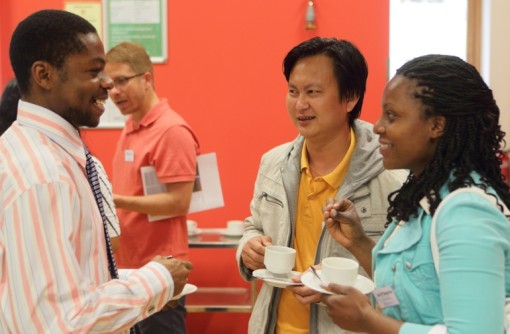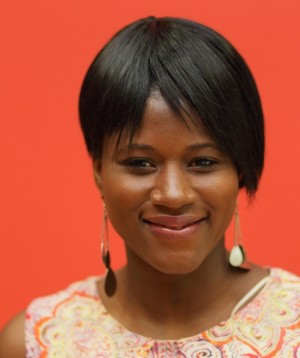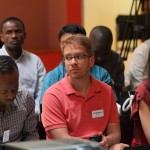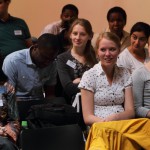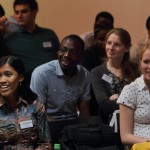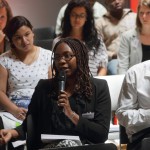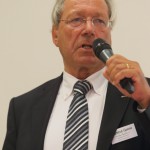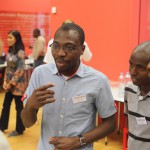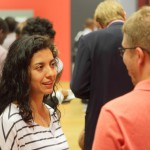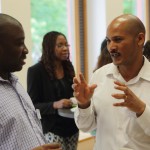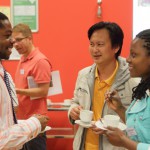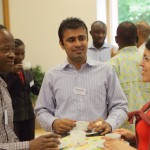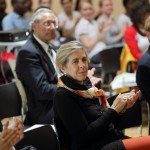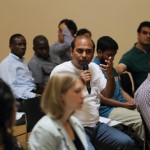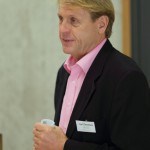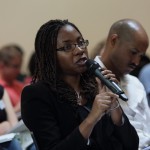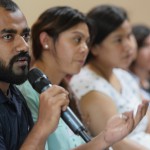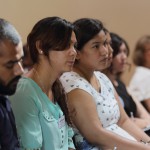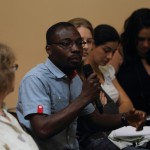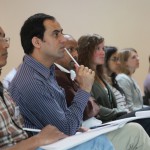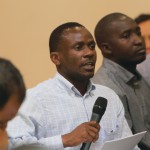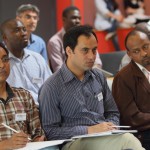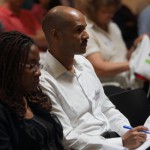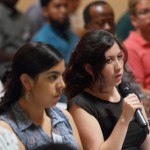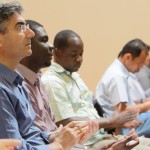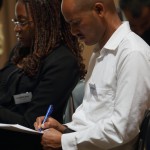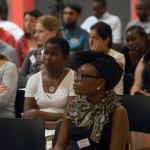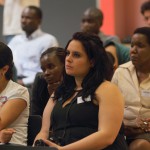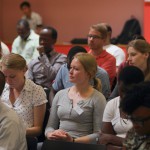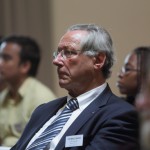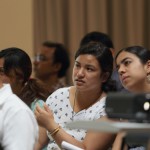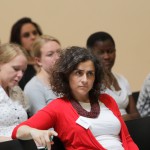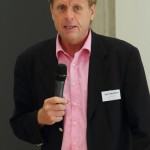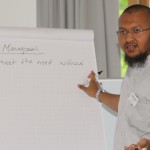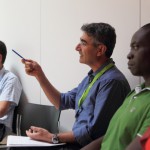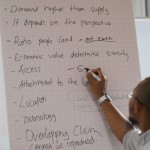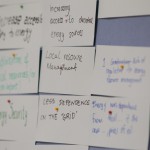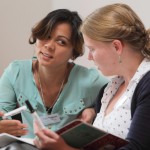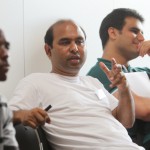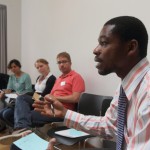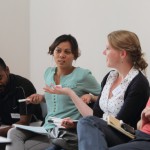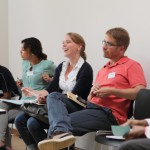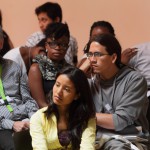The Master’s students from the Spatial Planning for Regions in Growing Economies (SPRING) programme organised and hosted the first Millennium Express workshop of the year, welcoming some 70 workshop participants to Dortmund for the event. The participants, who came from other postgraduate courses, discussed ways to improve the management of resources in developing countries where resources are scarce and how to get people involved and invested in such projects.
Scholarship holder Hannah Adom-Ameyaw from Ghana, one of the organisers of the workshop “Gearing towards Community Resiliency. Addressing the Scarcity of Productive Resources”, moderated throughout the event as well. “Input was provided by everyone in the programme,” she said. “Organising the workshop gave us all a chance to expand and develop our skills that was great.” They developed the idea for the workshop together with the DAAD, which also helped finance the event. “The workshop fit right into our theme for 2013: Fostering international sustainability,” says DAAD’s Julia Hillmann.
A look into how things are done
Eugen Diemel-Rellecke, head of the Rural Development and Environment Department at the consulting firm GOPA, started off by illustrating how modern-day development cooperation works using several real-life projects currently underway in various developing and emerging countries. During his presentation he emphasised how difficult it often is to interest the local population in the projects.
SPRING programme director Professor Einhard Schmidt-Kallert is also interested in this particular phenomenon. “New technologies such as wind turbines actually have their disadvantages, such as increased energy costs. If you want to ensure success, the first thing you have to do is talk to the local people and communicate the importance of the particular measure.”
Similar problems, similar questions
During the afternoon session, the students divided into three groups to discuss problem areas, best practices from their home countries, as well as potential approaches and strategies. The topics ranged from natural resources and land management to sustainable energies. Specialists were on hand to lend expert insight into the issues up for discussion.
The breaks were designed and used for networking. “In addition to a day of interesting presentations, the workshop also provided plenty of opportunity to make new friends and gain new perspectives,” said Mary W. Wangombe, a DAAD scholarship holder at the University of Bonn’s Agricultural Science and Resources programme.
Anne Weber, Manager of the SPRING programme, is proud of the students. “They did such a great job preparing for the workshop that I didn’t have to do a thing,” she said. The participants were equally impressed with both the workshop’s organisation as well as its content. “I am both relieved and motivated to know that so many people are thinking about the same problems and challenges. The workshop in Dortmund is an important milestone for future interdisciplinary collaboration,” said Ndimphiwe Jamile, who studies Urban Management at the TU Berlin.
Organising a workshop
The aim of the Millennium Express workshops is to facilitate the transfer of knowledge, the exchange of ideas and the development of strategies and solutions. Julia Hillmann encourages all students to organise a workshop of their own. “All the students have to do is take initiative the DAAD is there to supports them every step of the way,” she says. Hannah Adom-Ameyaw, the moderator of the Dortmund workshop, invites others to follow suit. “You are the one calling the shots; no one is telling you what to do,” she says. “It’s an amazing feeling!”
“We might know a lot, but we don’t seem to learn from it”
Image gallery Workshop in Dortmund:
Photos Michael Printz


